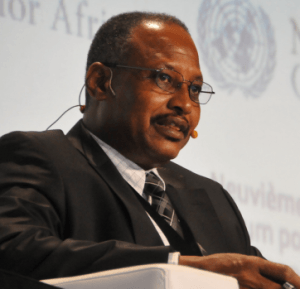There are significant risks to Africa’s positive growth outlook – ECA

Africa’s medium-term growth prospects for 2016 and 2017 remain positive but risks and uncertainties remain, Mr Adam Elhiraika Director of the Macroeconomic Policy Division of the UN Economic Commission for Africa (ECA) has said.
Mr Elhiraika said Africa’s growth will increase in the next year, driven by strong domestic demand of goods and investment, but faces risks including the weak recovery of the global economy, China’s economic slowdown and low commodity prices, the depreciation of major currencies, and the tightening of monetary policy in the United States and the European Union.
The Macroeconomic Policy Division Director made the projections while presenting a paper on the overview of recent economic and social developments in Africa during a meeting of the committee of experts under the inaugural African Development Week, according to a statement by the ECA.
The ECA said droughts, security and political instability were also cited as major stumbling blocks to Africa’s structural transformation.”
The Director was quoted as saying: “As a result we need to come up with African solutions to these risks if we are to witness the expected growth.”
“This includes strategies like adding value to our natural resources because in that way we create jobs that are on the low-end in the mining sector for example. We need to invest in agro-processing industries. Commodity price developments highlight the need for prudent and counter-cyclical macroeconomic management strategies and diversification from commodity sectors.”
Adam Elhiraika was also reported to have emphasized the need to increase intra-African trade and to match increasing urbanisation on the continent with an industrialised process that provides required skills, in order to create more jobs and address inequality and poverty.
Participants at the expert meeting were reported to have discussed many issues including how the continent can turn the fast-growing informal sector into formal jobs, the need for Africa to fund its own development agenda and the need to harmonise Africa’s developmental plans.
By Emmanuel Odonkor
